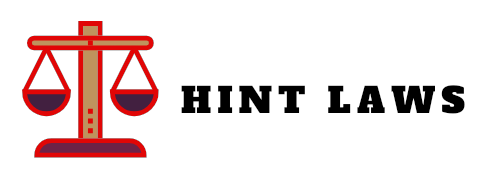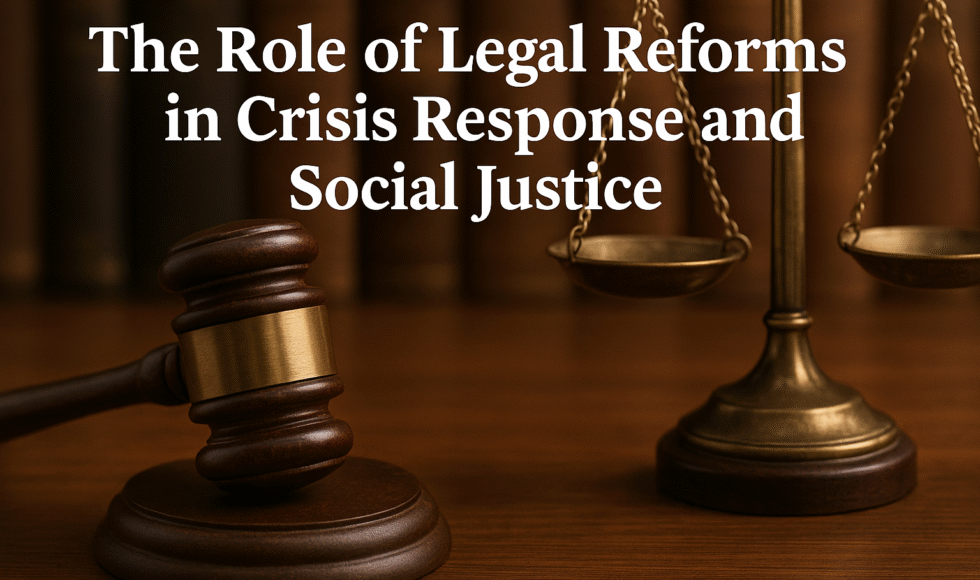Legal systems are at the center of how societies respond to crises. Whether the crisis is brought on by natural disaster, economic crisis, or structural injustice, the law provides for both the system and the protections that determine how resources are distributed and how people are protected. As the landscape of social need shifts, so too must the law that governs it. Legal reform is not just the tool of making government more effective—it is an essential tool for building stronger communities and the values of justice and protection.
Why Crisis Response Depends on Legal Infrastructure
Without specifically defined legal frameworks that spell out responsibilities, timelines, and protections for the affected population, effective crisis response becomes challenging. So, without such clarity, confusion and inefficiency reign in emergencies. The Disaster Management Act, Health Emergency Act, and Law on Housing Displacement will be considered the minimum baseline for mobilization. But these frameworks have to be flexible and adaptable in order to remain relevant as the threats move from climate-induced disasters to public health emergencies. Updates to regulations will reduce bureaucratic delays-a key thrust in improving these systems. They offer more efficient aid distribution, as well as speed up data sharing and emergency declarations into actionable decisions on the part of governments and organizations. They also need to be accompanied by transparency and accountability.
Legal Protection for At-Risk Populations
Protecting the rights of the already vulnerable is one of the most important factors affecting crisis response. One aspect of legal reform to be directed at closing protection gaps for disadvantaged groups, including low-income families, immigrants, people with disabilities, and Indigenous peoples. Most of these populations will face a higher risk in times of emergencies, and the existing laws are not able to address their specific needs effectively. One such area of improvement would be in the field of legal enhancement: anti-discrimination provisions, language-access requirements, and mandatory representation in emergency planning committees. Reforms should also focus on preventing abuse, including unlawful detainment or forced labor, particularly during times when institutional scrutiny tends to loosen.
It is a very pertinent aspect of a non profit organization for human trafficking in fighting the cause of exploiting individuals, making protective legal frameworks much of a priority. By lobbying for stricter enforcement and survivor-centered laws and policies, these groups contribute directly to meaningful legal change.

The Intersection of Justice and Humanitarian Aid
Social justice and emergency relief are deeply connected. Legal systems must account for how aid is distributed and who benefits from it. Historically, emergency relief efforts have been marred by unequal distribution, often neglecting poor communities. To rectify this disparity, there are regulations that need to explicitly mandate equity in distribution schemes, funding mechanisms, and infrastructure support.
In addition, it is crucial that housing policy, zoning, and health policy be properly re-examined in the social justice frame. When legal systems don’t accomplish this, they wind up making the disparities that crises exacerbate worse. Legal reforms must therefore go beyond the limited scope of short-term crisis management and focus on the underlying systemic problems that influence resilience and long-term recovery.
Provisions for mental health, legal, and labor support—especially for the displaced populations—must be included in the emergency support priorities. Integration of these services into emergency policy will facilitate a more comprehensive approach that promotes recovery rather than mere survival.
Building Confidence Through Legal Empowerment
A responsive and fair legal system builds trust among the groups it is designed to serve. When citizens are aware of their rights and believe that the application of legal safeguards is enforced evenly and without bias, they will be more willing to engage with public institutions and participate in collective solutions. Efforts to build legal literacy, pro bono legal aid services, and simplifying public legal documents are sound ways of building this trust.
Legal empowerment entails the encouragement of citizens’ ability to push for reforms. Mechanisms like public consultations, people-driven policy recommendations, and legal advisory committees allow citizens to raise their needs and concerns with lawmakers directly. To examine the effect of confidence on the law and decision-making, Hint Laws provides resources aimed at making the legal process understandable, hence more accessible to ordinary citizens. For further information, refer to the provided resources.
Legislative Pathways to Equitable Crisis Management
Creating legislation that increases equity during crises is a contribution from diverse stakeholders—emergency professionals, civil society, community leaders, and legal scholars. Channels to legislation should include ongoing checks to test whether the existing laws are fulfilling their hoped-for purpose. This continuous feedback mechanism enables the system to evolve and remain attuned to shifting problems.
Federal and state legislatures have to invest in informed decision-making based on evidence as well. Emergency response legislation must be supported by demographic research, impact analysis, and public health data to make sure that it truly represents the needs of various populations. An exemplary instance of such an effort can be seen in the Disaster Assistance Improvement Program, which consolidates emergency support resources without compromising compliance and accessibility requirements.

The Future of Responsive Legal Systems
Legal reform is the foundation of effective crisis management and social justice as a whole. The more ubiquitous and multifaceted threats are, the more legal structures need to adapt in order to become protective, just, and facilitative. By updating laws to current realities, we not only respond quicker to crises but more equitably.
Hint Laws is committed to revealing the legal systems that define the dynamics of society and advocating reforms that will institute enduring, positive change. Read our guides and articles to gain a deeper understanding of how laws affect your rights, your community, and your possible futures.

